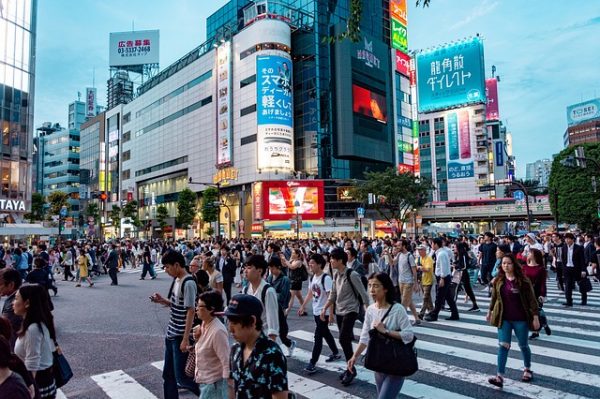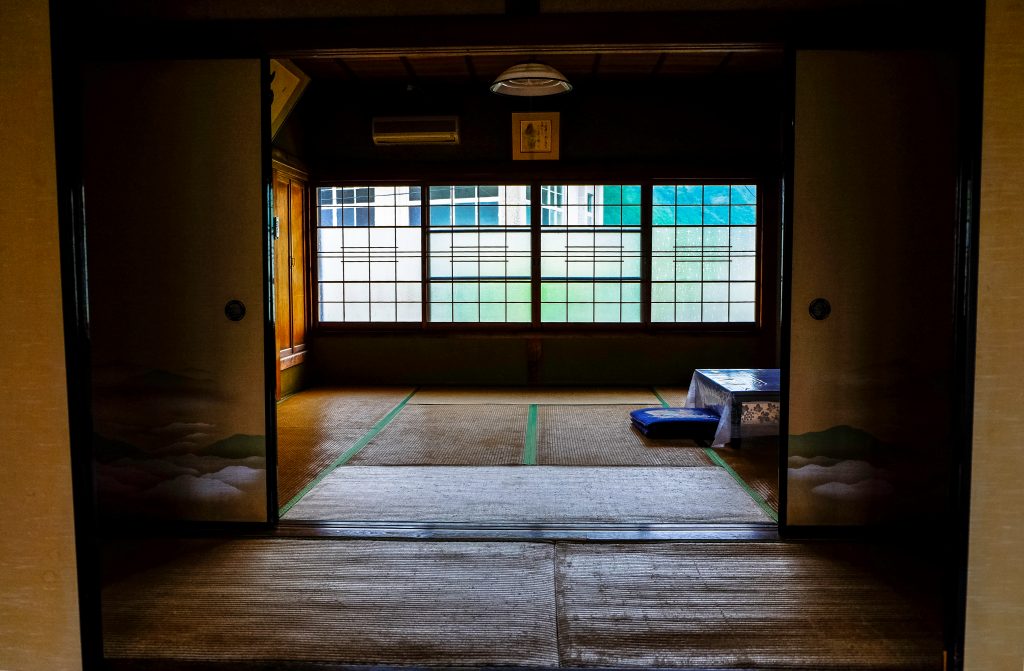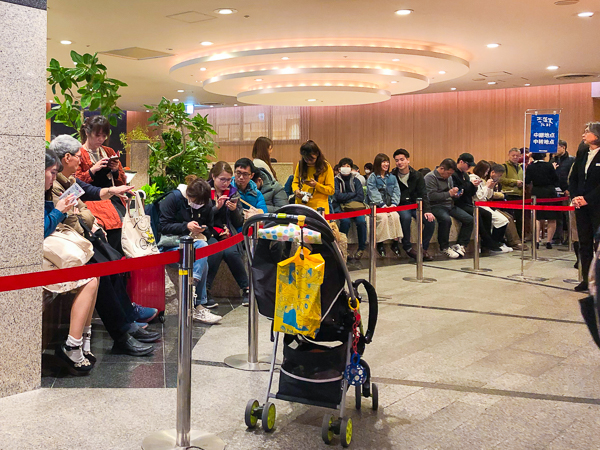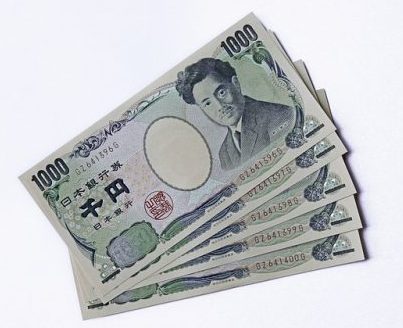
On the surface, Japan is a very westernized country. Especially in Japan’s larger cities, life seems very similar to the life in the cities in the U.S. – from the way people dress, to the recognizable fast food restaurants, and the way that people are so absorbed in their smart phones during their weekday commute. But there are fundamental differences in the culture that manifest in the different set of “customary codes of polite behaviors” or etiquette rules in Japan.
Japan is a very harmonious culture. There are unwritten social rules that are formed and if you are not following them, you eventually get shamed, subtly or publicly, into complying – if you live in Japan, that is. Some of these types of etiquette are so specific to Japan that if you are a first-time traveler to Japan, you may not realize that you are offending the locals…until it’s too late. Japanese people are very polite for the most part, so most likely they will not mention anything. But you may get “the looks” and you wouldn’t know why. So, before your trip to Japan, here are some of the basic etiquette rules that you need to be aware of so that you can avoid making these social mistakes!
1. Don’t wear your shoes inside
This is a custom that may require getting used to for those of you who grew up wearing shoes in the house. In Japan, the traditional way of life is to sit and sleep on the tatami floors (with cushions or futon mats laid on the floor to sit or sleep on). Bringing shoes to immediately next to where you sit, eat or sleep is absolutely unsanitary. Thus, the custom to remove them before stepping into the house. Even in some of the public tourist spots, restaurants or hotels you will be required to take your shoes off and change into slippers they provide. This is one of the reasons why socks and slip-on shoes are two of the essential items to pack to Japan.

You will notice at the entrance of a house or other various places where you are required to take your shoes off, there will be a small area to remove your shoes then you have to step up (albeit sometimes a small step) to get inside where you’ll be required to switch to the slippers. Don’t ever step up THEN remove your shoes. Always remove your shoes first before stepping up into the house or the establishment. Also, after you take your shoes off, be sure to neatly put them side-by-side and point the toes away from the house. If you don’t do this, your host will fix them for you. This way, when you are ready to leave, you are able to slip right into your shoes.
2. Talk quietly in public
It’s considered very rude to be loud in public – unless you are at a certain event (e.g., sports or concert) or at a festival where you are expected to cheer or have a great time collectively. So, use your “inside voice” literally everywhere including outside!
3. Don’t talk on the phone on the public transportation
This etiquette quickly formed in Japan with the advent and widespread of cell phones. Probably stems from the etiquette above, to talk quietly in public, which is almost impossible to do on the phone in public. Even if you are in your seat on the train where you think you might be isolated, it is not polite to talk on your phone. Another etiquette is always to have your cell phone on a silent mode on the public transportation. They call the silent mode the “manner mode” in Japan. It’s good manners to never let your phone ring in public and you will even see signs on the transportation to remind you. To make or take a call on the train, go to the designated area (typically at the end of each car) for phone calls.

4. Stand in a line / a queue
This might seem like a “no-duh” rule when you are going to the public bathrooms in the U.S. at crowded events. People get in line to wait their turn. But this rule totally applies EVERYWHERE in Japan. Probably the biggest surprise is when getting ON a public transportation. You stand in line, so that the first one there gets on the train/bus first. Don’t rush right to the door to hop on the train/bus. Look around and make sure that there isn’t a line already formed for what you are about to do. Because chances are, there is!
Also, be careful not to let people think that you are standing in line. People will start forming lines behind you even when you are not, if you are in a vicinity of where the line would or should be. Stay clear out of the way. (Seriously, at one point, we had to stand with our backs against a wall in a crowded train station! Otherwise, people kept forming a line behind us!!)

5. Don’t eat/drink while walking
This may be a surprising etiquette since vending machines and street vendors are all over the place in Japan. You might think that it’s OK to pick up a nice cold drink or the food-on-the-stick and start walking around while you enjoy your beverage or snack. But not so fast. You won’t even see anyone carrying a cup of coffee during the morning commute!
My guess is that this comes from the fact that it is so crowded in Japan that you would not want to take a chance spilling or bumping into someone with your food or drink. Besides, you will not see many trash cans in Japan. This means that when you are done with your food or drink, you will need to walk around with your trash until you find a trash can. It’s OK to drink or eat the food you just bought on the spot, whether it be from the vending machine or the street food vendor. They usually have the trash bins there to make it convenient for you to discard the trash and go on your merry way!
Related article: Because you will not find may trash bins, it’ll be convenient to carry a trash bag when traveling through Japan. Read what else you should be carrying with you while traveling through Japan!
6. Don’t hand money directly to the cashier
When you make a purchase, instead of giving your cash or credit card directly to the cashier, put your cash/credit card into a small (usually plastic with textured surface) tray that’s on the counter. This isn’t a huge blunder if you just hand the cash over to the cashier. But just look around to see if there is a small rectangular tray to put your cash to give to the cashier. Chances are they will give your change or your credit card back in the tray as well.

7. Don’t blow your nose. Wear a mask, if you must.
I am really not certain how this came to be a “rude gesture.” But blowing your nose in public – especially in a restaurant – is considered rude. Instead, you’ll see Japanese people constantly sniffling or actually better yet, they wear the cotton surgical masks in public. But whatever you do, don’t use linen napkins at restaurants to blow your nose. If you must, discreetly wipe your nose with tissues.

8. Don’t show PDA
Japanese people are still very uncomfortable with PDAs – public displays of affection. Couples might hold hands but that’s the extent of it. (It does, however, melt my heart to see an older Japanese couple walking around holding hands, showing their affection despite of how they’ve been brought up!) You may be on a honeymoon in Japan or you just may be very affectionate people in general. But just mind your surroundings, especially in the broad daylight, around children or the elderly, or in certain settings, like the temples and shrines. But really, no one needs to see you guys make out, in any setting, anywhere, ever!
9. Offer your seat in the public transportation
Respecting the elderly is a major virtue in Japan. If you are on a crowded train or bus, please do offer your seat to the elderly, handicapped, expecting mothers or mothers with babies. It’s expected when you are in the priority seats for these groups of people. But it’s the etiquette that should be followed for all seats.
10. Don’t point.
It’s not polite to point in many cultures and it’s generally true in Japan, especially never point at a person. If you need to point at someone to introduce him or her, you can direct the attention by pointing in the general direction of that person with your one palm up – as if you are showing the prize at a game show. And, oh my goodness, don’t ever point using your feet. I’ve seen foreign tourists do this in Japan: They tap something that’s on a lower shelf at a store with their feet to tell their travel companion about something about what’s on that shelf. What did I say about shoes earlier? They are unsanitary!!
11. No need to tip but don’t barter either
In many countries you visit, tipping is an unwritten rule to follow, especially for a great service received. But not Japan. You can almost always expect an exceptional service, so you do not tip, at restaurants or hotels, or ever. Instead read this article on ideas on what you may want to carry with you to offer for great service. Along with no-tipping tradition, it’s not an accepted practice to barter either at most retailers and shops.
Related article: Now you know some of the basic etiquette you should be aware of, learn some of the basic Japanese words you should know that can help you be just as polite as the locals!
Pin it for later!

Related Posts
Money Saving Travel Tips for Japan
One of the main reasons why Japan is on so many people’s bucket list…
May 14, 2020Top 10 things you must experience in Japan
If you are planning your very first trip to Japan, there are top 10 things…
May 6, 2020


Leave A Comment